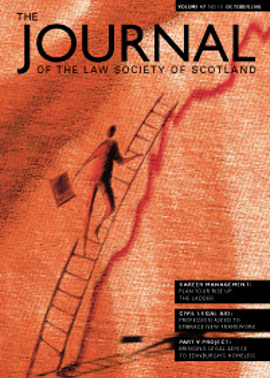Opinion
Firstly, recent oil price rises and the prospect of war in the Middle East. Secondly, the issues of trust and confidence arising out of the Enron/Andersen and other corporate scandals seriously undermines global confidence in balance sheet values and stock market prices which now show some real risks of harming the real economy. Lastly, the over supply/investment in the economy means that it may take time for demand to build before new investment takes place.
His view was that recovery may be a matter of years not months. Yet there was also evidence round the table that at the same time the fundamentals in many companies are as strong as they have ever been. In our firm we have found many investors, fearful of the equity market, looking for a home for their cash: the property sector still shows signs of strong demand for good deals. Interest rates are historically at an all time low (and may go lower). Around the table many people were concerned but also cautiously optimistic.
Listening to it, two thoughts occurred to me. The vital role that confidence will play in determining business people’s actions over the next 12-18 months. I was reminded by Teddy Roosevelt’s phrase “The only thing to fear, is fear itself”. Secondly, the necessity of clarity of purpose and effectiveness in all business decisions, in particular – as a people business – the need to balance the short term and the longer term.
Faced with current “wintry conditions” the temptation for many will be to draw in the horns, batten down the hatches and hibernate until the spring. Yet, as any good gardener knows, autumn and winter are equally busy times of the year. It is a time for tidying up in the garden, pruning to encourage better growth next year, planting new stock for the spring, protecting and nurturing young tender plants for the future. It is also a time for re-landscaping and moving plants to better locations. In the garden of running our business the same is equally true.
Talking to clients: Now more that ever there is a need to understand the pressures which our clients are facing and to use our knowledge of other similar organisations or industries to assist them in thinking about their own businesses. Many managing directors of client companies have no one else to share their thoughts and concerns with. Discussing their concerns will deepen your relationship with the client for the longer term and may in addition throw up short-term areas for action resulting in fee earning potential.
Talking to staff: Take a hard look at what you and your staff are now having to do and the skills and tools you need to do it. Are you doing the right things? Institute training on those skills and competences people need to do their jobs. Is knowledge within your firm organised in such a way as to optimise how work is done. Are opportunities for more junior staff and others to develop being lost through more experienced staff hanging on to work to maintain personal billings and/or appearing to be busy if deal flow is slower. Free up more senior staff to invest in the long-term future through business development, knowledge management and training. Look also at the balance of utilisation across departments. In the City of London firms, for example, are actively retraining lawyers for areas of business currently enjoying higher levels of activity.
Is your capital working hard enough for you? More than ever there is a need to keep a tight eye on work in progress and debtors. Following up with the client and managing these balances may provide real opportunities to lead into the sort of discussions around their own business referred to above. As a profession many of our businesses have a poor record of WIP and debt management. Our experience however is that active debt management programmes are welcomed by clients and recent initiatives in this area with several clients have halved payment terms. Take time also to look at the investment you have made in technology – has it paid off? Evaluating how you are and how you should be using that expensive screen on the corner of your desk will help determine future IT investment strategy.
Do you know who your clients are? Conduct a review of the client database, ensure it is up to date and accurate, weed out dead or forgotten clients, re-engage with others with whom you have lost contact.
During autumn and winter the successful gardener busies himself preparing the ground for next year and bringing in splashes of winter colour. The same should be true in our firms. Now, more that ever, there is every reason to be busying our selves with tasks such as those mentioned above. Happy gardening!
Paul Hally is Chief Executive of Shepherd+ Wedderburn
In this issue
- Scottish Solicitors’ Discipline Tribunal
- Opinion
- Dispelling myths of civil legal aid reform
- How healthy is your career?
- Hidden traps, new liabilities
- A lack of diligence
- Discerning changes in sentencing trends
- Initiatives to improve customer service
- Bringing legal advice to the socially excluded
- Keeping children safe on the internet
- Website reviews
- Technology to the rescue?
- In practice
- Plain speaking
- Book reviews






